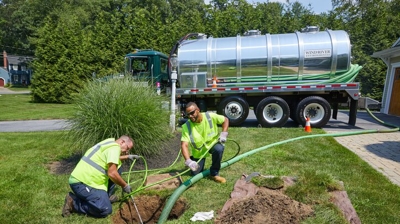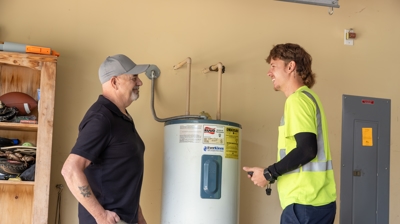Do you really know what’s drain-safe? Hint: Just because something is liquid or small enough to fit down there, doesn’t mean it’s advisable to do so. Learning the hard way can cause clogs, backups, and costly (often urgent!) plumbing repairs. Brush up on these drain-safe tips to keep your pipes flowing, pain-free.
Drain-Safe Liquids
Most liquids are fortunately drain-safe. Water, naturally, is good to go. Common household liquids like mild dish soap, as well as vinegar (which brings the added bonus of freshening up drains and preventing buildup), are also hassle-free.
The liquids you absolutely want to avoid include fats, oils, and grease (FOG). While they begin in liquid form, they can harden in your pipes, causing potentially property-damaging clogs that only a pro plumbing service (like Wind River Environmental) can repair. To safely dispose of FOG, let it cool (if heated), then pour into a disposable, sealable jug or container before putting in your household trash.
What’s Good for the Garbage Disposal
While a garbage disposal can be a handy addition to your kitchen sink, you’ll want to take care in what you feed it. Softer foods, like peels from fruits and veggies, cooked pasta, and smaller amounts of leftovers shouldn’t cause harm. While hard, ice cubes are actually useful for blade cleaning and general disposal upkeep.
Foods to keep away from your garbage disposal include harder options such as eggshells, coffee grounds, and more fibrous vegetables like celery. These can build up or wrap around the blades, obstructing usage and requiring professional repair. (You definitely don’t want to put your hand down there!)
Dastardly Drain Offenders
In addition to FOG, eggshells, and coffee grounds mentioned above, other common items (food or otherwise) can cause serious damage to your plumbing. These include flushable wipes, which—contrary to their name—don’t break apart like toilet paper and can create backups. Harsh household chemicals should also be avoided, as they can corrode pipes, plus damage the environment.
If you’re unsure what’s drain-safe or not, your best bet is to dispose of it in the trash. Checking with a plumber can also help avoid preventable (and likely expensive) damage.
Maintain Your Drain
No matter how diligent you are about following these tips, a bit of buildup is a given. Routine maintenance can keep things fresh and operational. For example, running hot water assists in washing away smaller particles. Combining baking soda and vinegar from time to time can separate minor clogs, preventing major problems down the road.
When it comes to more comprehensive care, professional service providers can safely and thoroughly maintain your plumbing system. Sticking to a regular schedule for both inspections and cleanings will help avoid costly repairs and facilitate smoother day-to-day use.
Call for Pro Help
Despite your best efforts, plumbing issues that go beyond simple home solutions can crop up. They’ll typically make themselves known, through slowing drainage, audible gurgling, or unpleasant odors. In these situations, call in a pro to investigate. And don’t delay! These are all warning signs of bigger issues—like backups or burst pipes—that can transpire if ignored, leading to pricey (and potentially very messy) property damage and repairs.


.2505150848079.png)
.2508141213110.png)

